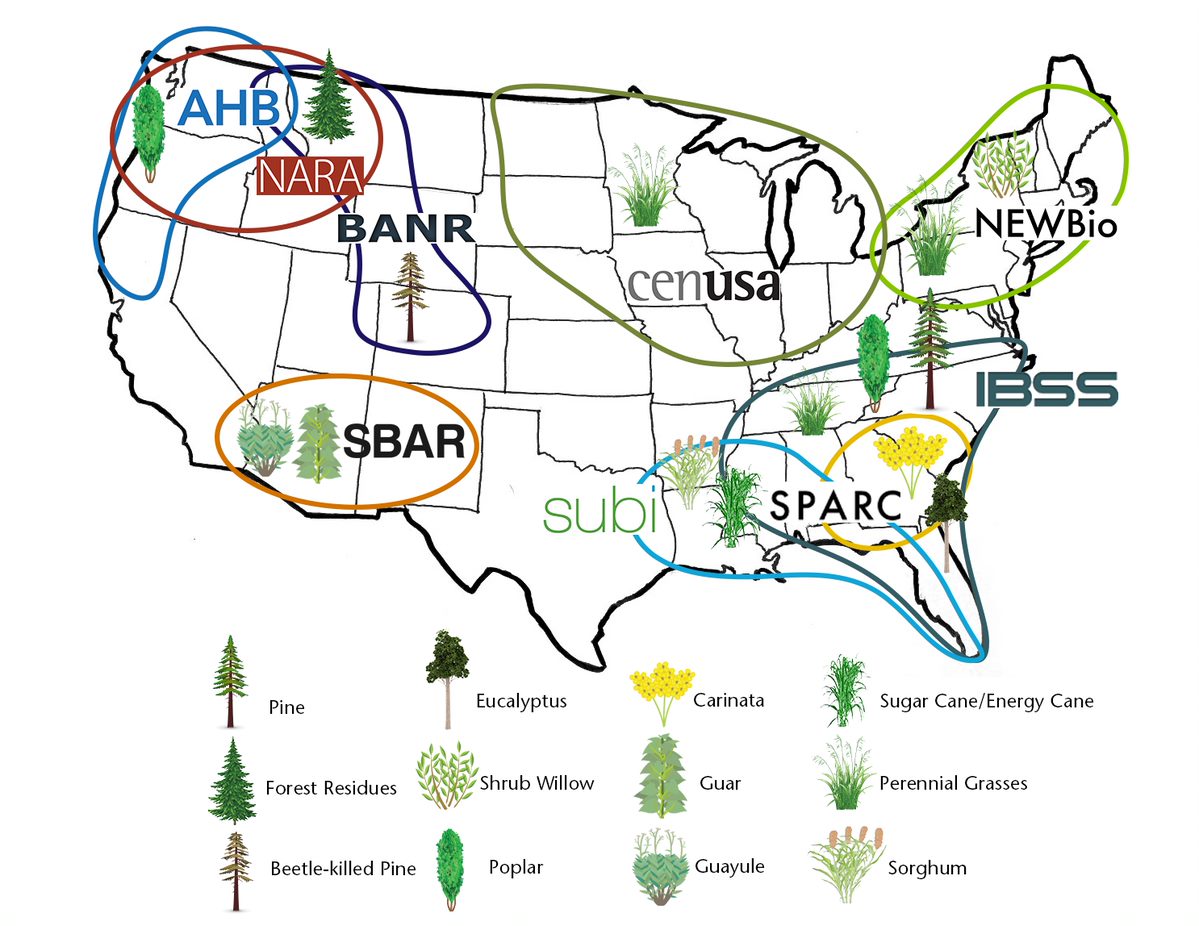Bioproducts and bioeconomy

USDA-NIFA Agriculture and Food Research Initiative (AFRI) – Including SBAR. For more information: energy.arizona.edu/SBAR
Motivation
To meet the future need of annually producing 36B gallons of biofuels, more feedstock sources for biofuels must be developed. One potential is utilizing co-product from guayule and guar processing. This increased interest has incited a need for quantitative assessment of the environmental impacts the production of guar, guayule, and their co-products have on the rural southwestern United States.
Guar (Cyamopsis tetragonoloba) is an annual desert legume that contains a polysaccharide used mainly in the food industry as a thickener and in the oil and gas industry during the recovery process. Guayule (Parthenium argentatum) is a perennial shrub that produces natural rubber that could be an ideal substitute for synthetic and other natural rubbers currently used in tires. The unique characteristics of both crops including nitrogen fixing capabilities, high water use efficiency, and low moisture storage requirements make them ideal crops to be grown in the southwestern US’s semi-arid to arid conditions, characterized by a lack of available water.
Our Work
Our work is a part of The Sustainable Bioeconomy for Arid Regions (SBAR) project whose goal is to optimize guayule and guar production to support the economies of the southwestern United States. As water becomes less available for agriculture, it is important to identify and test drought and heat tolerant crops that grow well in arid regions and provide positive economic returns.
The Bioproducts & Bioeconomy Sustainabiity team’s work includes developing a life cycle model to estimate environmental impacts for guar, guayule, and alternative crops such as Hevea, which requires accurately capturing the material inputs and outputs of the product systems including all aspects of the agricultural and downstream processing. Modeling results will ultimately be used to optimize the overall production of guar and guayule products and co-products with experimental work validating models throughout development. Our work will aid in providing a clear path to a sustainable regional bioeconomy in the American Southwest, while addressing several of the UN’s sustainability development goals.
Future Work
Holistic sustainability assessment methods that address all three pillars of sustainability are few and far between and emerging technologies pose a unique challenge for sustainability tools. Our future work will review the various social sustainability methods and evaluate their potential for integration with environmental and economic methods. We will also assess the ability for existing social sustainability tools to be applied to emerging technologies and examine opportunities for social sustainability assessment to aid sustainable development of emerging technologies.
Contact Us
Feel free to contact us if you have any comments, questions, or concerns. Follow us on Twitter and/or like our Facebook page to receive updates.
Email: lsrgmines@gmail.com
Twitter: @GroupLandis
Facebook: Landis Research Group